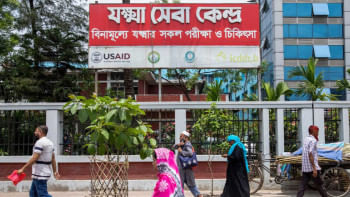Maintaining your health after Ramadan

Every year the Holy month of Ramadan provides us with the opportunity to eliminate unhealthy eating pattern and gives our overburdened digestive systems a much needed break. However, now that the blessed month of Ramadan is almost over and the Eid-ul-Fitr festivities are on our way soon. Here are few tips for maintaining the incredible health benefits and habits that you worked so hard to gain in Ramadan.
1. Fast twice a week
Try fasting two days a week after Ramadan. Scientific research has shown that intermittent fasting is beneficial for the body and mind. Studies have shown that periods of intermittent fasting speed up the process by which the wastes left by dead and damaged cells are removed from the body. Fasting has also been shown to result in physical and mental benefits, such as improved memory, sleep, concentration and increased energy.
2. Have 2-3 meals a day
Make a habit of eating 2-3 regular meals a day (similar to Ramadan), rather than 6 small ones. The sensation of hunger between meals, contrary to popular belief, can be of great benefit to our physical health. According to a study, the sensation of hunger may actually protect against Alzheimer's disease.
3. The 80/20 rule
Practice the 80/20 rule and eat only until you are 80% full. A good way to do this is to eat slowly, so you are aware of your satiation level while you eat. During Ramadan, the ritual of fasting allowed us to consciously recognise our body's hunger and satiation signals. Therefore avoid returning to mindless eating habits and overeating.
4. Take probiotics to maintain digestive health
The excessive consumption of sweets that followed the long days of fasting in Ramadan and that are a big part of Eid celebrations, might take its toll on your digestive system. Try adding a probiotic supplement to your daily regimen to replenish the levels of good bacterial flora in your intestines. Studies have shown that probiotics can also help keep colds and infection at bay as well as improve women's health and metabolism.
5. Be a good role model
Remember that you are a role model for others in your life. Therefore Ramadan was a great opportunity to model great behavior for young children. It also allowed them to witness the fruits of delayed gratification after a long day of fasting. If you are a parent, remember that your eating habits and behavior will shape your child's attitude towards food for the rest of their life. Be a good role model and demonstrate a healthy approach towards making food choices.
6. Abstain from smoking and make exercise a priority
For smokers intending to quit, Ramadan was an ideal time to gradually stop smoking and eventually curb the harmful habit altogether. Once Ramadan is over, if you are a smoker do not give in to the temptation of having a cigarette after meals. Continue to replace toxic habit with healthier ones such as exercise. Stays motivated with positive self-talk and make exercise a priority by sticking to your workout schedule.
Finally, always remember that great health maximises productivity in all areas of your life. Make your health a priority, treat it as a blessing and you will begin to see amazing benefits.

 For all latest news, follow The Daily Star's Google News channel.
For all latest news, follow The Daily Star's Google News channel. 



Comments